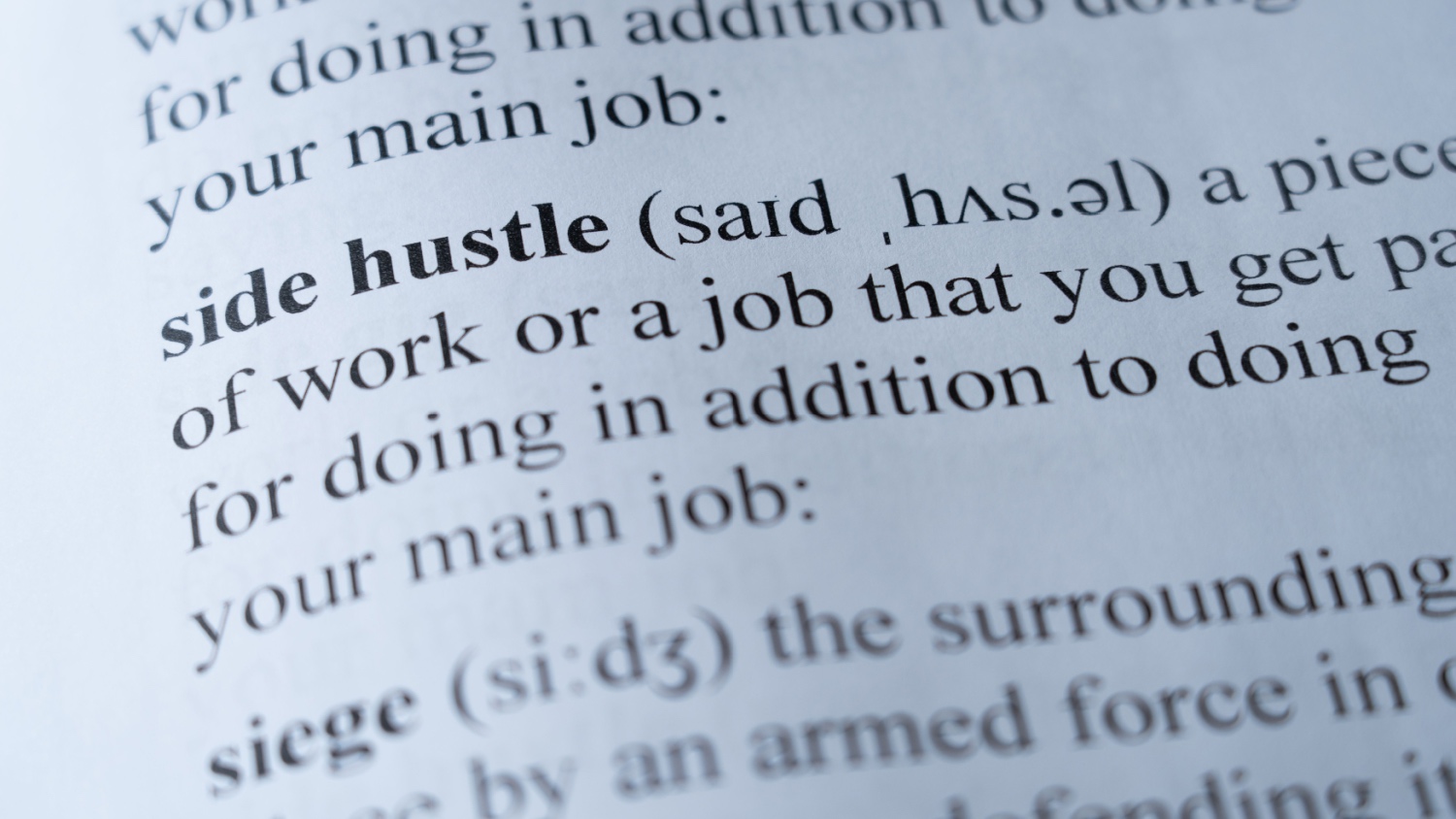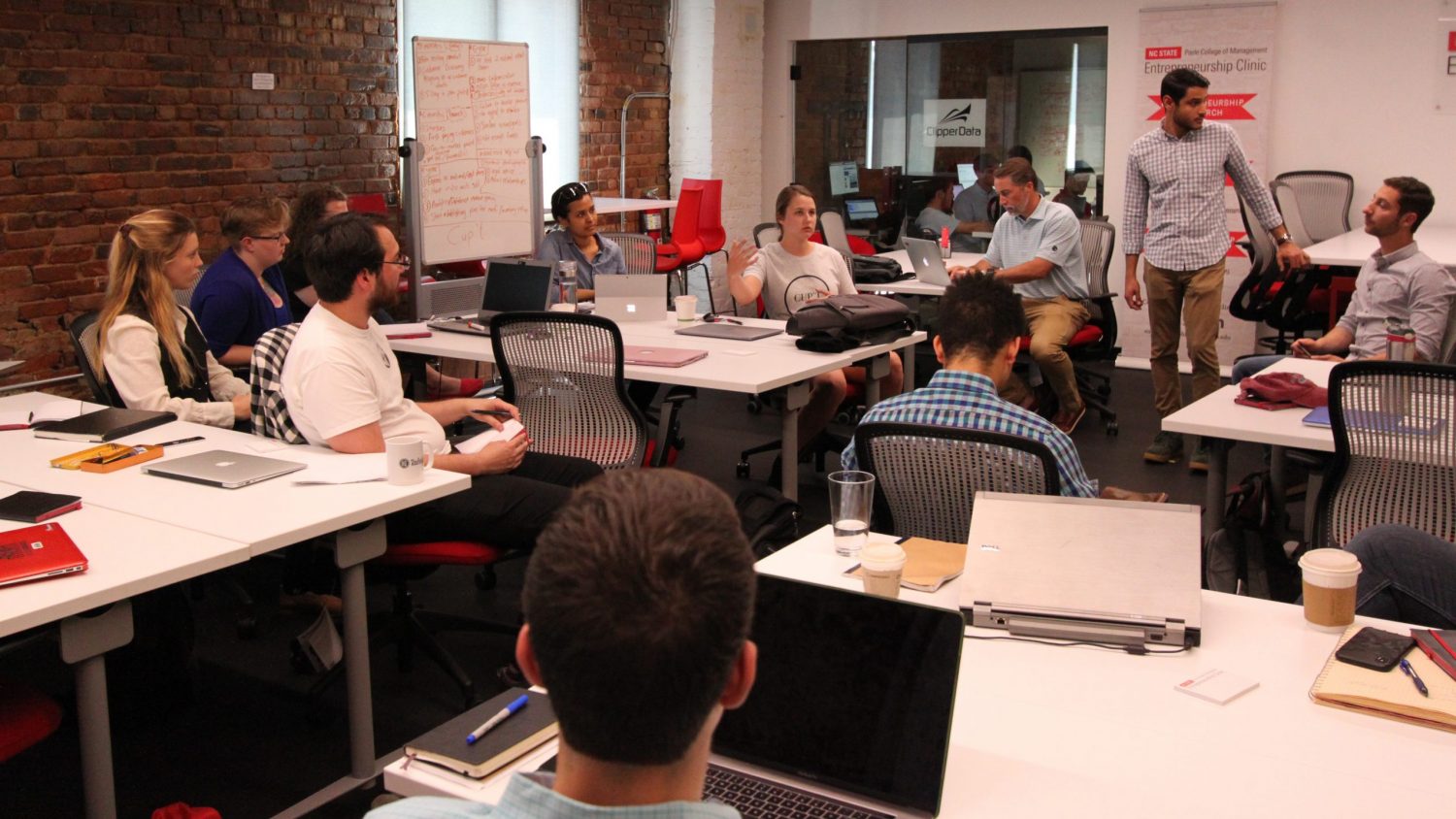Serial Entrepreneurship, Sensation-Seeking and Workaholism
Jon Carr, Jenkins Distinguished Professor of Entrepreneurship in the Poole College of Management, examines why so many entrepreneurs become serial entrepreneurs.

By Samantha Beavers
Between TV shows like “Shark Tank” and “Silicon Valley,” modern viewers have gained exposure to the world of startup companies and entrepreneurship — and all the blood, sweat and tears that go into it. Whether it’s stumbling across a million dollar idea or working around the clock to bring a dream into reality, the thrill and uncertainty of entrepreneurship has captivated a wide audience.
Entrepreneurs, too, are captivated — moving on from launching one business to start another, and then another. Why is it, though, that so many become serial entrepreneurs? Jon Carr, Jenkins Distinguished Professor of Entrepreneurship in Poole College of Management, recently collaborated with colleagues to find out. We sat down to discuss findings from his paper published in the Journal of Business Research.
Tell us a little bit about what prompted your research.
This study wasn’t a mere thought experiment, but a study informed by very real and observable startup behaviors. The reality is that many entrepreneurs are addicted to starting businesses. They sleep in their offices and work themselves to death just to get something off the ground – and then go on to start multiple businesses. We wanted to find out what’s driving this behavior. Is it simply because of the excitement of starting companies? Is it because these entrepreneurs have a certain disposition that, when coupled with the startup experience, leads them to habitual entrepreneurship behaviors? In other words, do their personalities have something to do with this?
The other thing that we found interesting is that people who start businesses generally know what happened to them. Were they successful? Did they go under? They have access to this performance feedback. So that raises another big question: do serial entrepreneurs take what happened to their last business into account before starting their next venture? Our goal was to determine how serial entrepreneurs’ personalities affected their decisions to start new businesses, and how much prior feedback played into these decisions.
How does your work contribute to existing research? What gaps were you hoping to fill?
In prior research, colleagues of mine explored some personality components associated with compulsion or addiction. Two dispositions mentioned in that study are sensation-seeking and workaholism. Workaholism is particularly interesting, because in some work environments, it’s considered a positive thing. Bosses like employees who are addicted to their work.
There’s been some interest in looking at entrepreneurial behavior from an addiction standpoint, but these two dispositions of workaholism and sensation-seeking had not been studied through the serial entrepreneurship lens – so that is what we focused on in our study. Specifically, we examined how people with these two compulsive dispositions react to prior feedback when starting new companies. Another thing that makes this study unique is that we sought to capture our results in a quantitative way, whereas past studies have been more qualitative, interview-style studies.
What did you find?
Most people would expect that if a business failed, or if there was very poor performance feedback, the startup founder would say, “Well, I don’t want to do that again. I’m not going to put myself through that nightmare a second time.” Similarly, we would expect that if a startup founder has great performance feedback, they would be more likely to start another company.
Interestingly, however, our research shows that certain entrepreneurs have dispositions that either cause them to take that feedback into consideration – or not at all. For people with higher dispositions of sensation-seeking and workaholism, their performance feedback – whether positive or negative – doesn’t really affect their interest in starting another company. That demonstrates the power of dispositions when it comes to evaluating feedback. It doesn’t necessarily prove that entrepreneurship is an addictive behavior, but it does demonstrate that these two personality dispositions associated with addiction are powerful drivers for people to start up new firms.
What implications do these findings have for entrepreneurs and aspiring entrepreneurs — including students at NC State?
Because entrepreneurs tend to display more optimism and confidence than the average person, it can be difficult for them to come to terms with the power of their dispositional orientations – especially these personality components that are associated with addiction. However, the reality is that people bring their own personalities to the table, and that can result in both positive behaviors and destructive behaviors in venture startup experiences.
So, it’s really important for people to have self-awareness and understand the impact their dispositions have on their behavior. While it’s inspiring to see folks who are willing to put everything they have into their business, we don’t want them to lose sight of a failed business or venture from the past, but to take into account what they have learned. Being able to learn from your accomplishments and your failures is a big part of entrepreneurial success.
This is particularly relevant for my students. There’s a lot of young people who come through Poole College who aspire to be entrepreneurs – and there are a lot of entrepreneurship opportunities here at NC State, such as the Entrepreneurship Clinic and Andrews Launch Accelerator. I think it’s wise for students to recognize how powerful their personalities might be – especially as they get closer to business launch opportunities. Dispositions are generally consistent over one’s lifetime, so if students can recognize sensation-seeking and workaholism tendencies in themselves now, they can start thinking about the impact these will have on their pursuits in the future.
What are some of your future research ideas?
I think it would be really interesting to examine serial entrepreneurial behaviors on the backside of peoples’ life cycles. There’s some interesting research that is being done around the retired entrepreneur, and the life events that caused them to get involved in the startup world – like the loss of a spouse, for instance. The other side of the equation is that people approaching retirement tend to have different perspectives than they did earlier in their career. So, I think it would be really interesting to look at serial entrepreneurship from these angles as well.
- Categories:
- Series:


